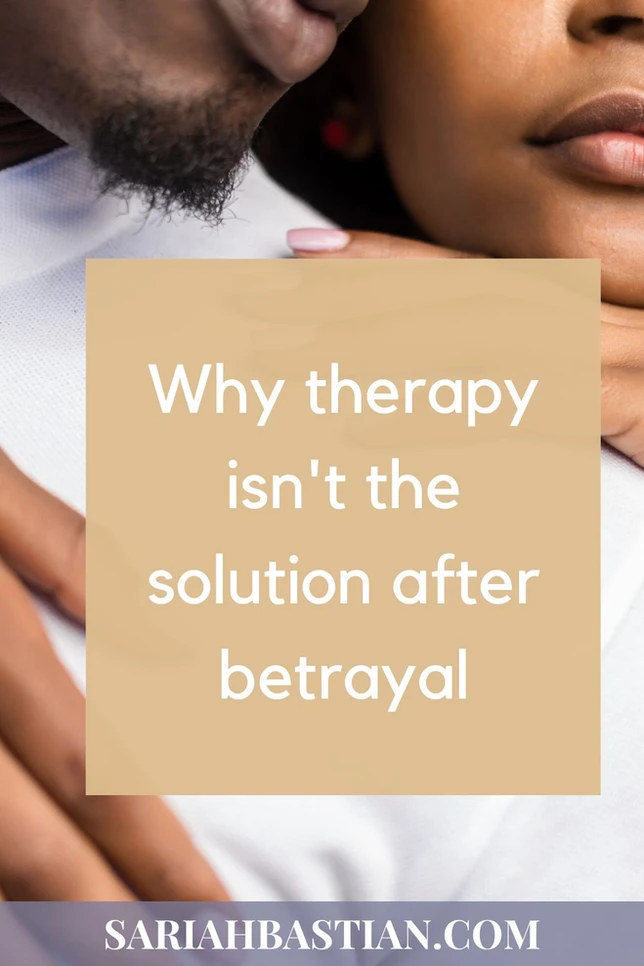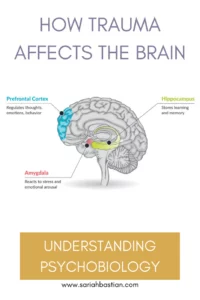
12 Jan Why Therapy Doesn’t Work After Infidelity
Beyond Breath TV: Why Therapy Does NOT Work After Infidelity
I was speaking with a potential client the other day on the phone. She told me that she and her husband had just graduated from their fourth therapist.
Sound relatable?
Since her husband’s infidelity three years ago, the two of them have been working to heal their marriage. She said she felt so confused as the therapist basically told them, “You’re good now. It seems everything is all right and I don’t have anything else I can offer you.” She felt like she was supposed to be happy, thinking, “Phew, we made it!”
Truthfully, though, she was panicking because they weren’t okay at all. You see, she’d participated in individual therapy for years doing EMDR, C.B.T., A.R.T., Neurofeedback, and more. They’d done couples counseling where she learned the details of his childhood trauma and how the infidelity was brought on.
Nonetheless, she was still suffering from unstable emotions. She found herself at times experiencing worry, anxiety, and insecurity. At other times she would feel like herself. Sometimes she felt like they were making progress, but then she would get caught up in rumination and intrusive thoughts, questioning everything all over again.
She felt like she was driving him crazy. She was seeking validation and wanted to talk about her feelings and thoughts. She wanted him to rehash all the details of the affair. She was still comparing herself to every other woman, saying that she could never be as fun, exciting, sexy, or interesting. She thought she’d never be good enough.
This potential client told me that she didn’t know what to do now that they had ended therapy because this was still not the marriage she wanted. She did not want to spend YET another year feeling the way she did.
Today I want to tell you two reasons why therapy may not be working for you after your husband’s infidelity.

Reason #1: It’s All About the Past
Therapy will help you unravel your past, but it will not give you the skills to build a future. If you’ve done your time in therapy, I’m sure you know well that there is a lot of processing about what has happened in your life, usually beginning in childhood. A lot of understanding can come from this information. The problem is that knowing that information won’t help you change your future.
If you continue to live with the same reactions, beliefs, and triggers that you did prior to the affair, your new relationship, whether it’s with him or someone else, isn’t going to change. You will only continue to repeat the past.

One of my clients, Sandy, told me that she and her husband were working so hard to make their marriage work after his infidelity. They had both been going to therapy for years, but they kept hurting each other. It was the last thing they wanted to do, but they didn’t know how to move beyond the affair.
Reason #2: Therapy Can’t Heal a Traumatized Brain
The second thing I want to share with you today is that therapy doesn’t heal emotional trauma. Emotional trauma is defined as the end result of events or experiences that leave us feeling deeply unsafe and often helpless. It can result from a single event, or be part of an ongoing experience such as chronic abuse, bullying, discrimination, or humiliation.

Emotional trauma affects three parts of your brain: the prefrontal cortex, amygdala, and hippocampus. These three parts are the same ones that are also affected when one experiences a traumatic brain injury (TBI). Your prefrontal cortex plays a central role in your cognitive control functions. Cognitive control refers to the intentional selection of thoughts, emotions, and behaviors based on current task demands and social context. Cognitive control also refers to your ability to withstand the temptation of inappropriate habitual actions. It influences attention, impulse control, inhibition, prospective memory, and cognitive flexibility.
Let’s put that into English. In essence, your prefrontal cortex is responsible for your ability to switch between thinking about two different concepts and your ability to choose different emotions. It helps you stay civilized and act and behave in a way that represents who you are.
After experiencing the emotional trauma of infidelity, it’s almost impossible to think about anything else. It’s always in the back of your mind. Sadness underlies every emotion and the sky just isn’t as blue. And as to staying civilized and maintaining composure? Don’t worry. We’ve all acted in ways we’re not proud of.
Your amygdala is responsible for the detection of threats. It allows you to appropriately respond to threatening or dangerous stimuli. However, once affected by emotional trauma, the amygdala becomes hyperactive. Sufferers of emotional trauma often respond much more fiercely to stressors than others. They’re easily triggered, causing confusion in the amygdala as to whether they’re in danger or not.
Finally, the hippocampus is in charge of the three necessary stages in learning and memory encoding. It stores new information, maintains that information over time, and allows you to retrieve that information when you need it.
As I’m sure you’ve experienced if you’re living with trauma, you may have trouble telling the difference between the past and present. This can lead you to avoid situations that remind you of the trauma. You may have difficulty understanding and processing certain kinds of information. You may understand the whys, hows, wheres, and whats of what happened, but be unsure of what to do with all this information.
Therapy doesn’t work after infidelity until your mind and heart are cleared of all this emotional trauma. By clearing your emotional trauma, you can RESET your biological stress response. Unfortunately, most women participate in therapy first. They’re just doing what Google has said to do and they end up throwing in the towel of their marriage early because they just can’t get past the images and the replays and the fears.
Time for Action
If you’ve been diligent in your therapy sessions and have graduated, but still find yourself spinning on how to move past this, you’re not alone. Now, I’d love to hear from you. Have you participated in therapy or have graduated from it and still find yourself experiencing flashbacks, insecurity, and fear? How does that make you feel? Tell me in the comments below and let’s start building a community of women who have or will overcome the trauma of infidelity.
I’m also giving you access to a completely Free Guide to help you stop the panic, phone-checking, and worry that consumes so many women after infidelity. You CAN heal from emotional trauma. I am here to share my secrets to creating a marriage full of passion, intimacy, and excitement. I know you want that. I wanted it too and I am so proud to say that I have it today.
Thank you for being here. I love you.





